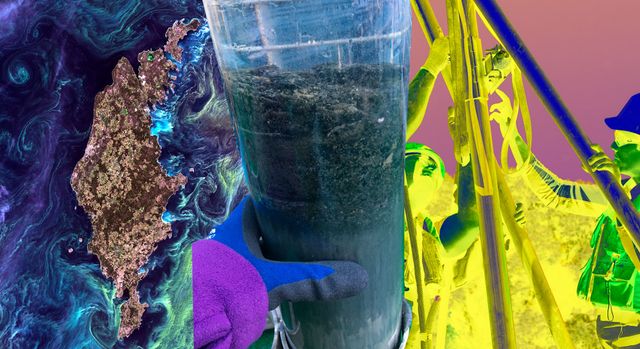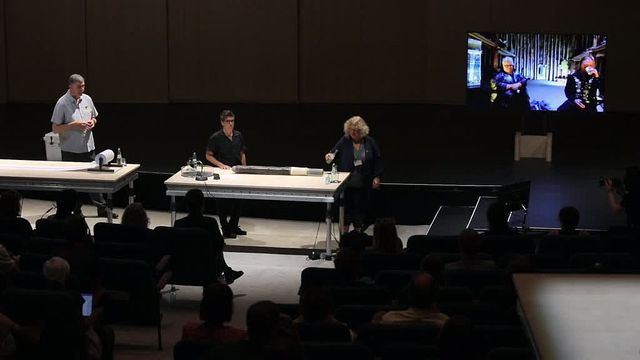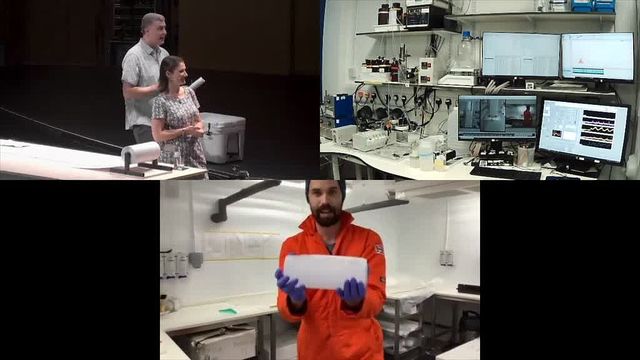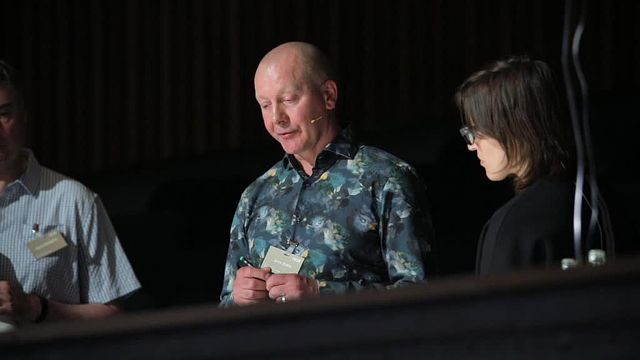Opening
Opening Days: Core Readings
In German and English
We recommend that guests wear FFP2 masks. More information

The onset of the Anthropocene has already left deep imprints in Earth’s sediments. But of what kind? And how can they be read? What do they reveal about the social, political and technological transformations over the last century?
For the opening night of Unearthing the Present, scientists, researchers and artists undertake a series of close readings in the stratigraphic archives of the Anthropocene.
By jointly studying an Antarctic ice core, the sediments of a Canadian lake and coral samples from the Caribbean Sea and Pacific Ocean, they chronicle the industrial impacts, technological changes, social transformations and violent ruptures of the emerging Earth epoch. Using live inputs from research sites and laboratories, participants develop an experimental practice of deciphering the present through its traces in Earth’s strata.
The Core Readings probe the potential of stratigraphic research to make the Anthropocene materially legible as a truly novel and potentially cataclysmic horizon within Earth history and, with it, human history.
The varved sediments of Crawford Lake (Canada) record nuanced signals from human activity throughout the last centuries, from Indigenous communities that settled along its shores, to the effects of the 1930s Dust Bowl, to the nuclear fallout from atomic weapon tests in the 1950s. Through a stratigraphic reading of these events, participants will explore how processes of settlement and land-use shaped both human and Earth histories.
An ice core from the Antarctic Peninsula contains detailed data about the changing climate in Antarctica, from snowfall patterns to concentrations of CO₂. Reconstructions of paleoclimatic conditions are essential for our understanding of the current shifts in the cryosphere. This Core Reading will focus on the intricate technical infrastructures and processes needed to decipher the ice archives.
Coral samples from the West Flower Garden Bank reef (Gulf of Mexico, USA) and Flinders Reef (Australia) archive anthropogenic processes, from ocean warming to the fluctuations of submarine oil drilling. While coral reefs minutely register changes in the hydrosphere, they are increasingly subject to mass bleaching events. Participants will address the critical condition of corals both as life forms and as environmental archives.
The sediment cores from Sihailongwan Maar in China are particularly marked by the history of Chinese industrialization. Both socio-political upheavals and technological change can be precisely traced in the sediment samples. In this session, participants will explore the chemical markers of Chinese environmental and industrial history and the different ways in which energy sources and usage have been conceptualized in northeastern China.
With Soren Brothers, Neal Cantin, Kristine L. DeLong, Daniel Emanuelsson, Yongming Han, Jack Humby, Li Li, Francine M. G. McCarthy, Michelle Murphy, Sophia Roosth, Susan Schuppli, Catherine Tammaro, Dieter Tetzner, Liz Thomas, Mark Williams, Mi You and Jens Zinke.


